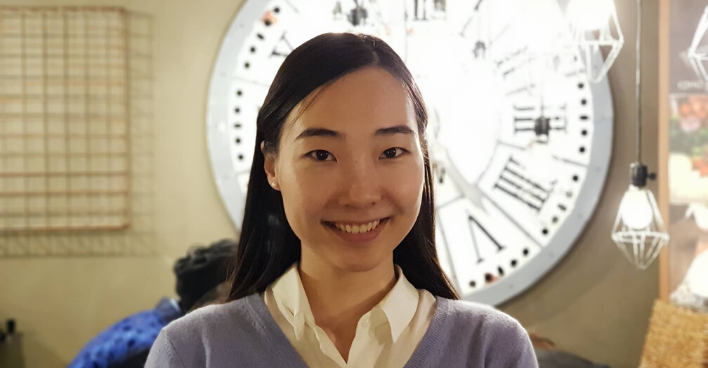During these unprecedented times due to the COVID-19 pandemic, young people find themselves stuck at their homes across the world. This unusual experience of self-isolation has significantly altered their lives and reality, bringing not only concerns and doubts, but also opening doors for new opportunities and possibilities.
People inside the community start to be more aware of how much their behavior can affect the world, … toward a more sustainable mentality to appreciate what really matters in life: health and family.
As part of UNESCO’s initiative “MY COVID-19 Story”, young people have been invited to tell their stories and experiences: how they feel, how they act, what makes them feel worried and what future they envision, how the crisis has affected their lives, the challenges they face, new opportunities being explored, and their hopes for the future. This campaign was launched in April as part of UNESCO’s response to the COVID-19 pandemic. It aims to give the floor to young people worldwide, share their views and amplify their voices. While the world grapples with the challenges of the COVID-19 pandemic, many young people are taking on new roles, demonstrating leadership in their countries and communities, and sharing creative ideas and solutions. To this day, UNESCO has already received more than 150 written testimonials.
Self-isolation can be a difficult time… However, many young people worldwide decided to tackle this with productivity and positivity. Monty (17), a secondary school student from the United Kingdom, is developing new digital skills and has created his own mini radio station. Lockdown helped Öykü (25), a young filmmaker from Turkey, to concentrate on her creative projects. And for Joseph (30), a teacher from Nigeria, this time is a way to open up to lots of learning opportunities through webinars.

The crisis has changed not only the daily routine, but also perceptions of everyday life. For some young people rethinking the value of time and common moral principles appears to be key.
“The biggest lesson for me is understanding … [the value of] time. During these last months I made more use of my time than in a past year.” - shares young tech entrepreneur Barbara (21), from Russia. Ravikumar (24), a civil engineer from India, believes “This crisis makes us socialize more than ever. We are eating together, sharing our thoughts and playing together which happened rarely within my family before.”
Beyond the crisis
After massive upheavals in the lives of many people, the future for young people seems to be both a promising perspective to seize some new emerging opportunities, and a time filled with uncertainty about the crisis consequences and the future world order.
“It is giving us an opportunity to look into how we need to better support our vulnerable populations, in terms of food and educational resources”, says Anusha (19), from the United States of America. For Mahmoud (22), from Egypt, the COVID-19 crisis is a call to action: “After the pandemic, I will put a lot of efforts into helping people who have been affected by COVID-19. I am planning to improve their health by providing sports sessions, highlighting the importance of a healthy lifestyle.”
But not all young people are optimistic about the future. Phone (17), a student from Myanmar expresses his worries: “This crisis makes our lives harder. I do feel that our world is not ready to fight against the pandemic. The damages for developing countries like ours become double or triple compared to developed countries who have a great economic stimulus package.”

The COVID-19 pandemic brings uncertainty and instability to young people across the world, making them feel worried about this new reality they’re living in and presenting several new challenges every day, as they find themselves at the front line of the crisis. That is why, more than ever, we need to put the spotlight on young women and men and let their voice be heard!
Be part of the campaign!
Join the “MY COVID-19 Story” campaign! Tell us your story!
We will share it on UNESCO’s social media channels (Twitter, Facebook, and Instagram), our website, and through our networks across the world.
You can also share your testimonials by recording your own creative video! How? Sign up and create your video here: https://zg8t9.app.goo.gl/Zw2i.
